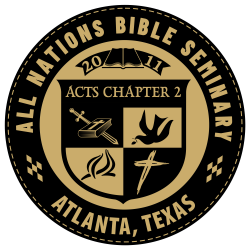As a mouthpiece or spokesman for God, the prophet’s primary duty was to speak forth God’s message to God’s people in the historical context of what was happening among God’s people. The broadest meaning is that of forthtelling; the narrower meaning is that of foretelling. In the process of proclaiming God’s message, the prophet would sometimes reveal that which pertained to the future, but, contrary to popular opinion, this was only a small part of the prophets message. Forthtelling involved insight into the will of God; it was exhortative, challenging men to obey. On the other hand, foretelling entailed foresight into the plan of God; it was predictive, either encouraging the righteous in view of God’s promises or warning in view of coming judgment. So the prophet was the divinely chosen spokesman who, having received God’s message, proclaimed it in oral, visual, or written form to the people. For this reason, a common formula used by the prophets was, “Thus says the Lord.” As God’s spokesman, their message can be seen in a three-fold function they had among the people of God in the Old Testament: First, they functioned as preachers who expounded and interpreted the Mosaic law to the nation. It was their duty to admonish, reprove, denounce sin, threaten with the terrors of judgment, call to repentance, and bring consolation and pardon. Their activity of rebuking sin and calling for repentance consumed far more of the prophets’ time than any other feature of their work. The rebuke was driven home with predictions about the punishment that God intended to send on those failing to heed the prophet’s warning (cf. Jonah 3:4). Second, they functioned as predictors who announced coming judgment, deliverance, and events relating to the Messiah and His kingdom. Predicting the future was never intended merely to satisfy man’s curiosity, but was designed to demonstrate that God knows and controls the future, and to give purposeful revelation. The prediction given by a true prophet would be visibly fulfilled. The failure of the prediction to be fulfilled would indicate that the prophet had not spoken the word of Yahweh (cf. Deut. 18:20-22). In 1 Samuel 3:19 it is said of Samuel that the Lord was with him and let none of his prophetic words fail (lit., “fall to the ground”). Finally, they functioned as watchmen over the people of Israel (Ezek. 3:17). Ezekiel stood as a watchman on the walls of Zion ready to trumpet a warning against religious apostasy. He warned the people against political and military alliances with foreign powers, the temptation to become involved in idolatry and Canaanite cultic worship, and the danger of placing excessive confidence in religious formalism and sacrificial ritual. While the prophets functioned in various ways as they communicated God’s message, they occupied one major role in Israel’s religious system. The prophets in Israel occupied the role of a royal diplomat or prosecuting attorney, indicting the nation for violations of the Mosaic covenant.

